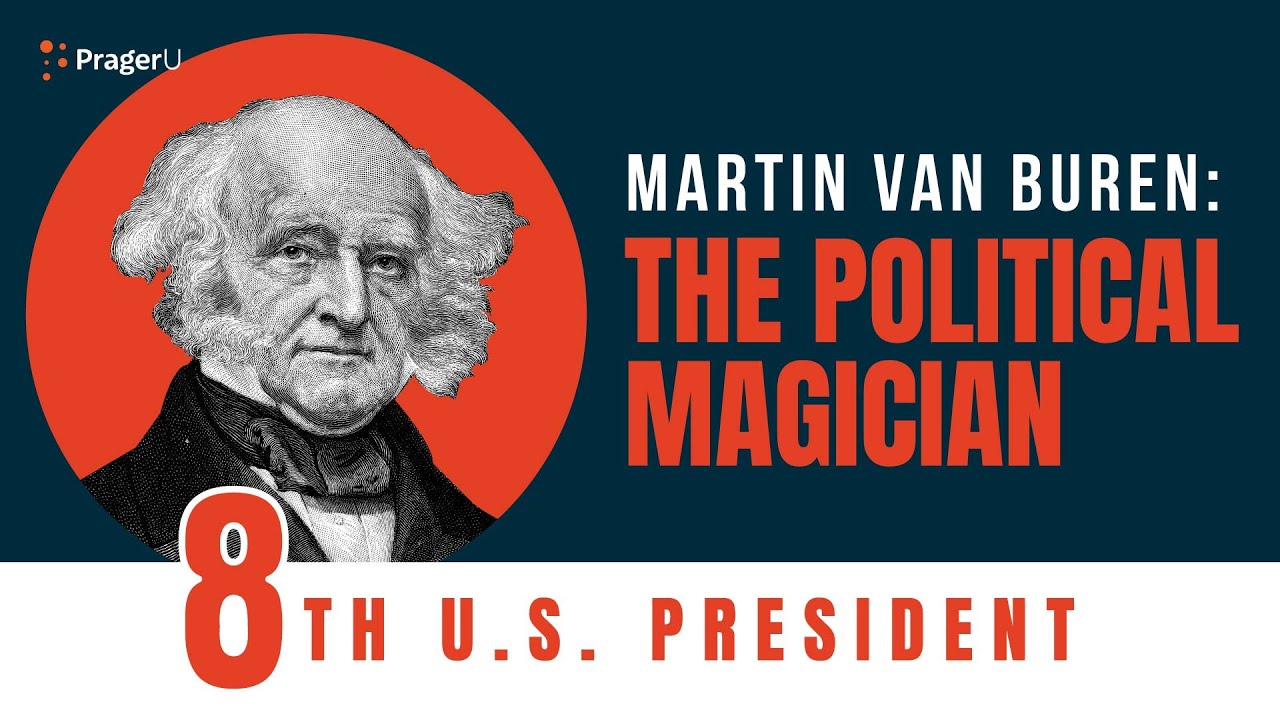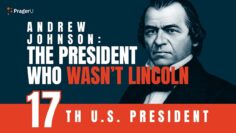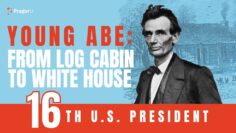
Martin Van Buren: Political Magician
The first person to fully realize the value of organizing around a political party was the eighth President of the United States, Martin Van Buren. The party he helped to create is still thriving today. Wilfred McClay, professor of history at Hillsdale College and author of Land of Hope, explains how Van Buren shaped America’s political destiny.
Watch PragerU’s American Presidents series: https://l.prageru.com/3IjUsLU
SUBSCRIBE 👉 https://www.prageru.com/join
Script:
Think for a moment about the word “politician.” What does it mean to you? Is it a term of praise?
That seems unlikely.
Instead, words like “partisan” or “corrupt” probably spring to mind.
Many of America’s Founding Fathers felt the same way. They hoped the nation could be governed without political parties, by citizen-statesmen who transcended their differences for the sake of the public good.
But that ideal proved hard to establish, and even harder to maintain.
As the country grew, the economic and political interests of different groups diverged, and disagreements over various issues — taxes, westward expansion, slavery — widened so much that they couldn’t be smoothed over by simple appeals to patriotism.
The first American leader to embrace this reality was Martin Van Buren, the eighth president of the United States—the first president who deserves to be called a professional politician.
Van Buren recognized that political conflict was unavoidable. The trick, he realized, was to make sure you had an organization to protect your interests. Thus, the significance of his crowning achievement—the forging of the Democratic Party. This was his vehicle for promoting the political ideals of the Founding Father he most admired, Thomas Jefferson, and those of the charismatic general with whom he became so closely associated, Andrew Jackson.
Their ideals—the preeminence of state and local concerns, the suspicion of a national bank that catered to Eastern elites, and the wisdom of limiting the power of the federal government—were the heart of his political convictions.
Yes, as odd as it sounds now, the Democratic Party, in Van Buren’s day, was the party of small government.
Martin Van Buren was born on December 5th, 1782 in the upstate New York town of Kinderhook, where his father ran a popular inn and tavern located on the road between New York City and Albany. Tavern life offered the young man an advanced course in political science. Current events were, so to speak, on the menu every day. His tavern experience also helped him understand what made people tick and how to deal with them.
In 1796 at age 13, he apprenticed to a local attorney and learned the basic rudiments of the legal profession. The practice of law became his ladder of upward mobility, and his entrée into the political world.
He also learned how to dress properly. More than that, he became renowned for his sartorial splendor, sometimes combining colors — yellow, orange, green, and brown — and fabrics — silk, velvet, and Moroccan leather — in a single ensemble.
But if his clothes were elite, his political leanings were not.
As he said in his memoirs, he had “faith in the capacity…of the People of our Country to govern themselves…”
Van Buren’s first political victory came in 1812 when he was elected to the New York State Senate. What he found there was — in a word — chaos: men with strong opinions, but unable to marshal them into effective political action.
Over the next decade, he went to work, melding his like-minded colleagues into a cohesive unit. To achieve his goals, he used the power of patronage (to offer jobs to supporters), the power of the press (to influence public opinion), and the power of the purse (to direct money to favored projects). Most importantly, he imposed discipline. If you were a party member, you supported the party. And if you didn’t, the party wouldn’t support you.
The political machine he created — the first in American history — was called the Albany Regency. With it, Van Buren dominated New York state politics for twenty years and earned the sobriquet “The Little Magician.” He took his magic show national when he was elected to the US Senate in 1821.
But Van Buren’s career really took off when he formed an alliance with military hero Andrew Jackson.
The combination of Jackson’s popular appeal and Van Buren’s organizational genius made them a formidable duo. With Van Buren as a top advisor, Jackson decisively won the 1828 and 1832 presidential elections. Van Buren became Jackson’s most trusted lieutenant. He served as Jackson’s Secretary of State, Minister to the United Kingdom, and in Jackson’s second term, as Vice President and designated heir.
For the full script, visit: https://www.prageru.com/video/martin-van-buren-political-magician
source











An interesting man, knew how to play politics excellently. While his policies towards banks may have led to that depression, his lack of intervention was why is was short lived.
However, we mustnt forget that Buren oversaw the tragedy of the Trail of Tears and took measures only in late stages to mitigate the disasters.
And you wonder why the Democrat party is the way it always has been. Van Buren's ideals and beliefs when forming the party back fired including alot of infiltration of disgusting minded people from within and turned it into the most crooked political party we still see to this very day. Take away the discipline part and you'll have one of many definitions describing the Democratic party
He was the only president that wasn’t related.
He championed the idea of using divide and conquer tactics to gain political power, pitting groups against each other to gain political leverage. In that sense, moreso than Jefferson or Jackson, Van Buren can be said to be the father of the MODERN Democrat party.
not a big Van Buren fan. the video calls him andrew Jackson's right hand man, but one could argue that more accurately that 'team van buren' (ie the 'olde garde deutch reform establishment') got Jackson (one of the great honest presidents along with Kennedy, Nixon, Reagan and TR) by the balls and caused the crash in order to consolidate control over markets
Often i think of Dr. Seuss when i see some of the goofy hair styles today; then i think of Martin Van Buren.
A power that has subsequently (and somewhat ironically) moved political authority away from the vast majority of people and to the hands of corporations and the elite (on both sides of the aisle).
The USA are not a country
Interesting the implication that Van Buren was able to whip the whole Democratic Party into shape, yet we have the famous quip decades later from Will Rogers (1879-1935) "I belong to no organized political party. I'm a Democrat."
It occurs to me that to this day, Democrats are still well organized unlike the Republicans, but I once had a conversation with a Democrat, who suggested it was quite the opposite based on her perspective I found that quite interesting as I am a Republican
Fun fact: We got the word: “okay” or “ok” thanks to this president. It was due to his nickname: Old Kinderhook!!!
The depressing but, at this point, unquestioned fact is that the anti-federalists were right. About everything.
I'm leading my AP government class through a survey of the president's right now, and if this series were complete, I would absolutely use it as the basis for it. Oh well, there's always next year.
Sounds like Coolidge has some competition for the best President ever.
That Chaos Van Buren encountered in New York was a feature, not a bug. He didn't facilitate government action he overrode purposeful government gridlock.
2nd greatest prez behind John Tyler. Read ‘Recarving Rushmore’ yall. Limited gov is the best gov! 🇺🇸
That don’t sound like good things at all
"The two happiest days of my life were those of my entrance upon the office and my surrender of it."
– Martin Van Buren
Hmmm, good at political organizing but lousy at being president. I thought he was talking about that guy from the early 21st Century.
Political parties have become the biggest danger to any and all democracies around the world